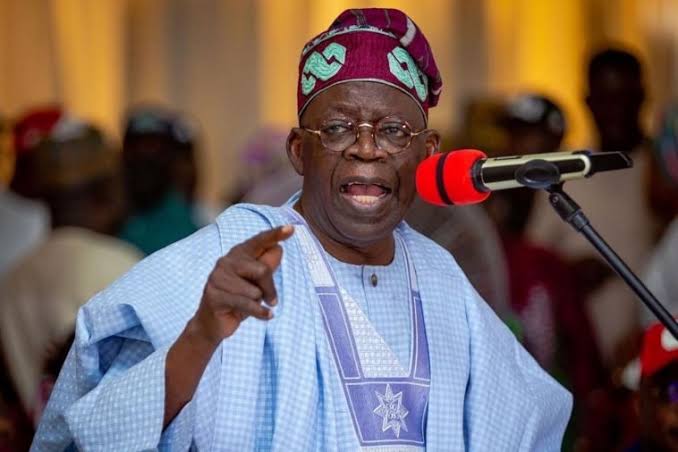Business
APPRECIATING TINUBU’S PENCHANT FOR EXCELLENCE IN BUDGETING

*APPRECIATING TINUBU’S PENCHANT FOR EXCELLENCE IN BUDGETING*
By Okanga Agila
The Budget Office of the Federal Republic of Nigeria operates under the guidance of the Federal Ministry of Finance and Economic Planning. Over the years, the Office has witnessed numerous leadership transitions—often abrupt and inconsistent—leading to underperformance, infrastructural decay, and an erosion of professionalism. Leadership struggles and industrial unrest were further compounded by partisanship and blatant disregard for established procedures. Staff postings were dictated more by personal preferences than institutional needs, resulting in a disoriented system that drifted far from its mandate.
At its lowest point, the Budget Office had deviated from being a cornerstone of national development to a platform marred by inefficiency and weakened leadership. It became symbolic of bureaucratic lethargy and a conduit for underwhelming outcomes.
This dismal trajectory began to reverse when President Bola Ahmed Tinubu, known for his knack for spotting talent and assigning responsibilities to the most capable hands, appointed Tanimu Yakubu as Director-General of the Budget Office of the Federation. A respected economist and former Chief Economic Adviser to President Umaru Musa Yar’Adua, Yakubu brought to the role the intellectual depth and administrative acumen needed to drive transformational change.
Under his leadership, the country has witnessed a marked turnaround in budgetary performance. Sound economic reforms and a focus on sustainable growth have contributed to stabilizing an ailing economy. A significant part of this transformation is attributable to a restructured and inclusive budgetary process that emphasizes team spirit, delivery, and responsiveness to the needs of citizens.
Yakubu has streamlined the budget planning and allocation system, ensuring that national resources are channelled toward addressing real economic gaps. His approach is both focused and people-centred, leading to strategic outcomes such as a reduction in inflation—from 34% to 15% in 2025—and a steady improvement in economic indicators.
Among his most notable innovations is the enhanced monitoring of projects, supported by the engagement of consultants to ensure cost-effective and durable implementation. These measures have built investor confidence and encouraged both local and foreign investments.
His reform agenda also includes a redefinition of agricultural investment. By opening up previously untapped opportunities and portfolios, food security has been bolstered through widespread bumper harvests, contributing to the reduction of food-related inflation.
The Budget Office, under Yakubu’s direction, has adopted policies that prioritize poverty alleviation and disaster response. Strategic reallocations—such as N120 billion earmarked for flood mitigation and support to public hospitals—have ensured that underserved populations gain access to life-saving medicines, including for conditions like tuberculosis and HIV.
Furthermore, Yakubu’s organizational restructuring of the Budget Office has significantly improved staff performance and internal coordination. His strategic foresight in identifying inflationary triggers and implementing countermeasures has helped stabilize the economy. Today, Nigeria not only enjoys steady revenue growth and increased foreign reserves (now exceeding $42 billion) but has also surpassed its oil production targets—reaching over 2.6 million barrels per day, with an initial boost of 130,000 barrels per day.
A distinguished alumnus of Wagner College, Yakubu anchors his policy direction on promoting fiscal sustainability, transparency, and accountability in public finance management. He is widely recognized for his results-driven, inclusive leadership style that inspires and empowers staff across the Office’s six operational departments and seven units. This collaborative environment has led to impressive improvements in the functions of departments such as Revenue/Fiscal Policy, Social and Economic Expenditure, Budget Monitoring and Evaluation, Human Resource Management, and Finance and Accounts.
By fostering interdepartmental synergy, Yakubu has achieved a high-performance culture. His strong communication skills and motivational leadership have unified the workforce, enhancing productivity and accountability at all levels.
Yakubu’s crowning achievements include the development of a forward-looking economic blueprint aligned with the government’s development priorities and the establishment of a state-of-the-art ICT Centre at the Budget Office. His commitment to staff welfare, transparent monitoring systems, and project tracking has ensured a more efficient and impactful budget performance across Ministries, Departments, and Agencies.
Indeed, Tanimu Yakubu stands as a clear testament to President Tinubu’s commitment to excellence and meritocracy. His appointment has brought about a necessary transformation in the Budget Office, catalyzing economic stabilization and laying a firm foundation for national development and prosperity.
Okanga writes from Agila, Benue State.
Business
Nigeria’s Inflation Drops to 15.10% as NBS Reports Deflationary Trend

Nigeria’s headline inflation rate declined to 15.10 per cent in January 2026, marking a significant drop from 27.61 per cent recorded in January 2025, according to the latest Consumer Price Index (CPI) report released by the National Bureau of Statistics.
The report also showed that month-on-month inflation recorded a deflationary trend of –2.88 per cent, representing a 3.42 percentage-point decrease compared to December 2025. Analysts say the development signals easing price pressures across key sectors of the economy.
Food inflation stood at 8.89 per cent year-on-year, down from 29.63 per cent in January 2025. On a month-on-month basis, food prices declined by 6.02 per cent, reflecting lower costs in several staple commodities.
The data suggests a sustained downward trajectory in inflation over the past 12 months, pointing to improving macroeconomic stability.
The administration of President Bola Ahmed Tinubu has consistently attributed recent economic adjustments to ongoing fiscal and monetary reforms aimed at stabilising prices, boosting agricultural output, and strengthening domestic supply chains.
Economic analysts note that while the latest figures indicate progress, sustaining the downward trend will depend on continued policy discipline, exchange rate stability, and improvements in food production and distribution.
The January report provides one of the clearest indications yet that inflationary pressures, which surged in early 2025, may be moderating.
Bank
Alpha Morgan to Host 19th Economic Review Webinar

Alpha Morgan to Host 19th Economic Review Webinar
In an economy shaped by constant shifts, the edge often belongs to those with the right information.
On Wednesday, February 25, 2026, Alpha Morgan Bank will host the 19th edition of its Economic Review Webinar, a high-level thought leadership session designed to equip businesses, investors, and individuals with timely financial and economic insight.
The session, which will hold live on Zoom at 10:00am WAT and will feature economist Bismarck Rewane, who will examine the key signals influencing Nigeria’s economic direction in 2026, including policy trends, market movements, and global developments shaping the local landscape.
With a consistent track record of delivering clarity in uncertain times, the Alpha Morgan Economic Review continues to provide practical context for decision-making in a dynamic environment.
Registration for the 19th Alpha Morgan Economic Review is free and can be completed via https://bit.ly/registeramerseries19
It is a bi-monthly platform that is open to the public and is held virtually.
Visit www.alphamorganbank to know more.
Business
GTBank Launches Quick Airtime Loan at 2.95%

GTBank Launches Quick Airtime Loan at 2.95%
Guaranty Trust Bank Ltd (GTBank), the flagship banking franchise of GTCO Plc, Africa’s leading financial services group, today announced the launch of Quick Airtime Loan, an innovative digital solution that gives customers instant access to airtime when they run out of call credit and have limited funds in their bank accounts, ensuring customers can stay connected when it matters most.
In today’s always-on world, running out of airtime is more than a minor inconvenience. It can mean missed opportunities, disrupted plans, and lost connections, often at the very moment when funds are tight, and options are limited. Quick Airtime Loan was created to solve this problem, offering customers instant access to airtime on credit, directly from their bank. With Quick Airtime Loan, eligible GTBank customers can access from ₦100 and up to ₦10,000 by dialing *737*90#. Available across all major mobile networks in Nigeria, the service will soon expand to include data loans, further strengthening its proposition as a reliable on-demand platform.
For years, the airtime credit market has been dominated by Telcos, where charges for this service are at 15%. GTBank is now changing the narrative by offering a customer-centric, bank-led digital alternative priced at 2.95%. Built on transparency, convenience and affordability, Quick Airtime Loan has the potential to broaden access to airtime, deliver meaningful cost savings for millions of Nigerians, and redefine how financial services show up in everyday life, not just in banking moments.
Commenting on the product launch, Miriam Olusanya, Managing Director of Guaranty Trust Bank Ltd, said: “Quick Airtime Loan reflects GTBank’s continued focus on delivering digital solutions that are relevant, accessible, and built around real customer needs. The solution underscores the power of a connected financial ecosystem, combining GTBank’s digital reach and lending expertise with the capabilities of HabariPay to deliver a smooth, end-to-end experience. By leveraging unique strengths across the Group, we are able to accelerate innovation, strengthen execution, and deliver a more integrated customer experience across all our service channels.”
Importantly, Quick Airtime Loan highlights GTCO’s evolution as a fully diversified financial services group. Leveraging HabariPay’s Squad, the solution reinforces the Group’s ecosystem proposition by bringing together banking, payment technology, and digital channels to deliver intuitive, one-stop experiences for customers.
With this new product launch, Guaranty Trust Bank is extending its legacy of pioneering digital-first solutions that have redefined customer access to financial services across the industry, building on the proven strength of its widely adopted QuickCredit offering and the convenience of the Bank’s iconic *737# USSD Banking platform.
About Guaranty Trust Bank
Guaranty Trust Bank (GTBank) is the flagship banking franchise of GTCO Plc, a leading financial services group with a strong presence across Africa and the United Kingdom. The Bank is widely recognized for its leadership in digital banking, customer experience, and innovative financial solutions that deliver value to individuals, businesses, and communities.
About HabariPay
HabariPay is the payments fintech subsidiary of GTCO Plc, focused on enabling fast, secure, and accessible digital payments for individuals and businesses. By integrating payments and digital technology, HabariPay supports innovative services that make everyday financial interactions simpler and more seamless.
Enquiries:
GTCO
Group Corporate Communication
[email protected]
+234-1-2715227
www.gtcoplc.com
-

 celebrity radar - gossips6 months ago
celebrity radar - gossips6 months agoWhy Babangida’s Hilltop Home Became Nigeria’s Political “Mecca”
-

 society6 months ago
society6 months agoPower is a Loan, Not a Possession: The Sacred Duty of Planting People
-

 society5 months ago
society5 months agoReligion: Africa’s Oldest Weapon of Enslavement and the Forgotten Truth
-

 news6 months ago
news6 months agoTHE APPOINTMENT OF WASIU AYINDE BY THE FEDERAL GOVERNMENT AS AN AMBASSADOR SOUNDS EMBARRASSING









